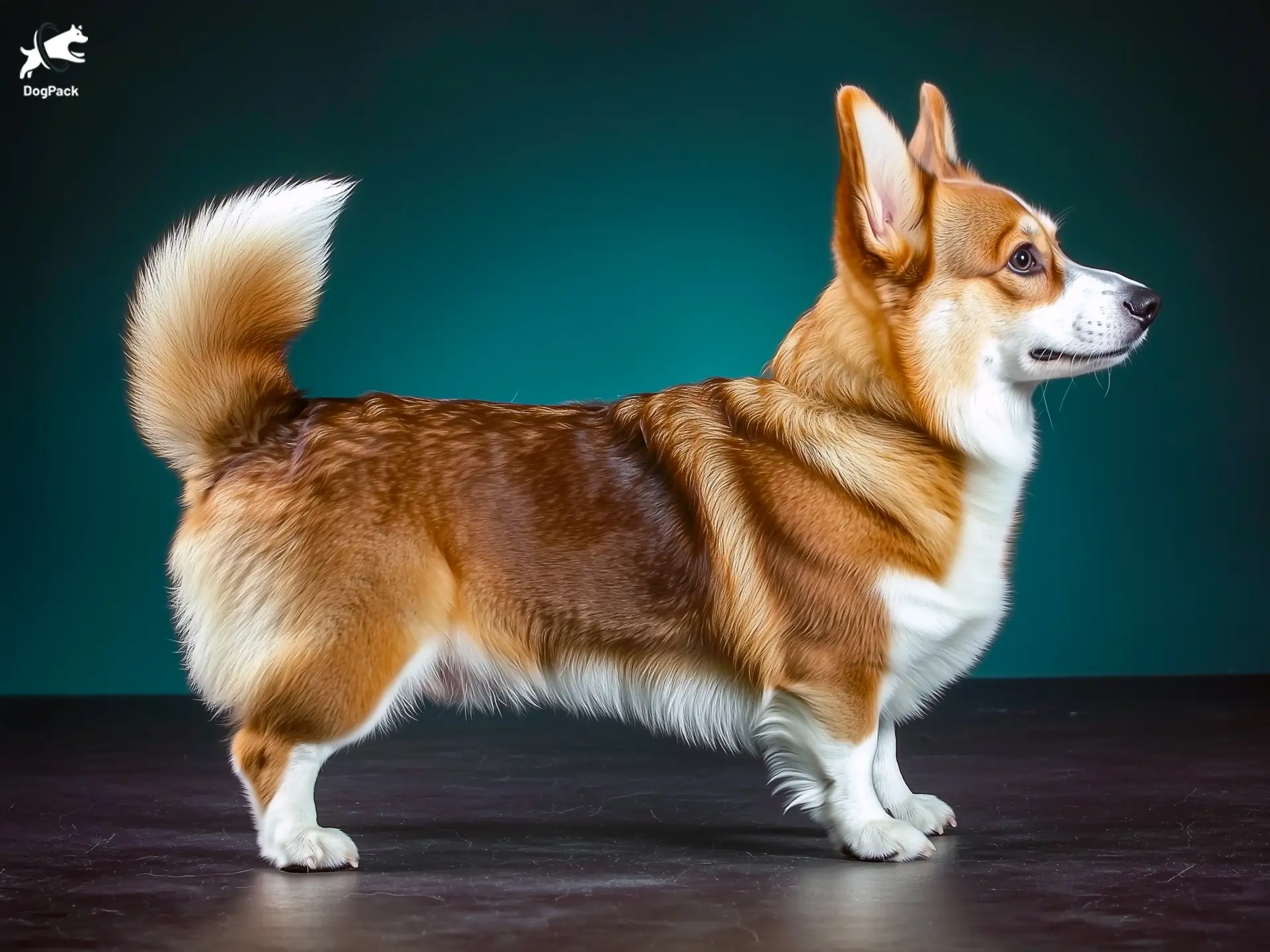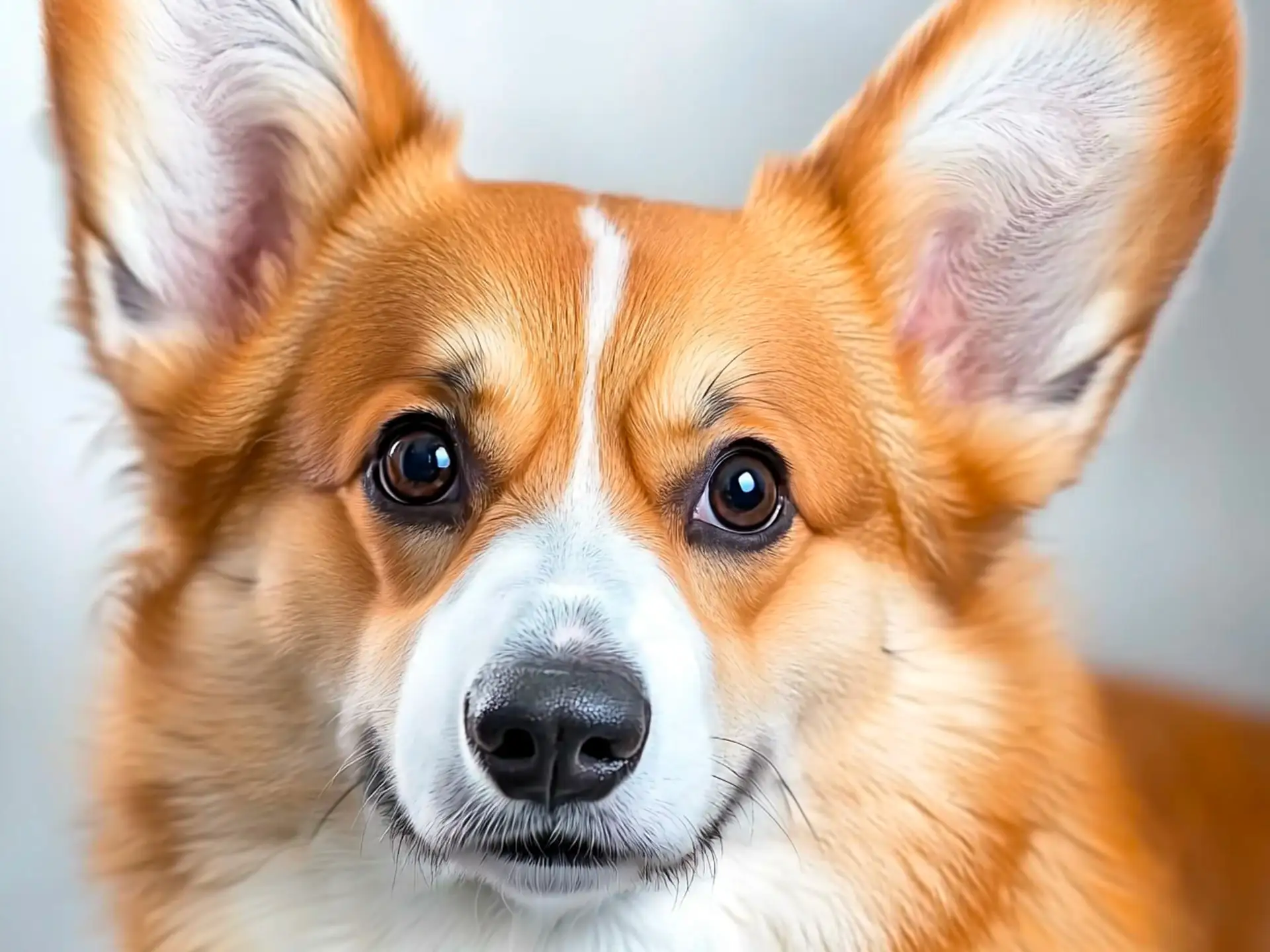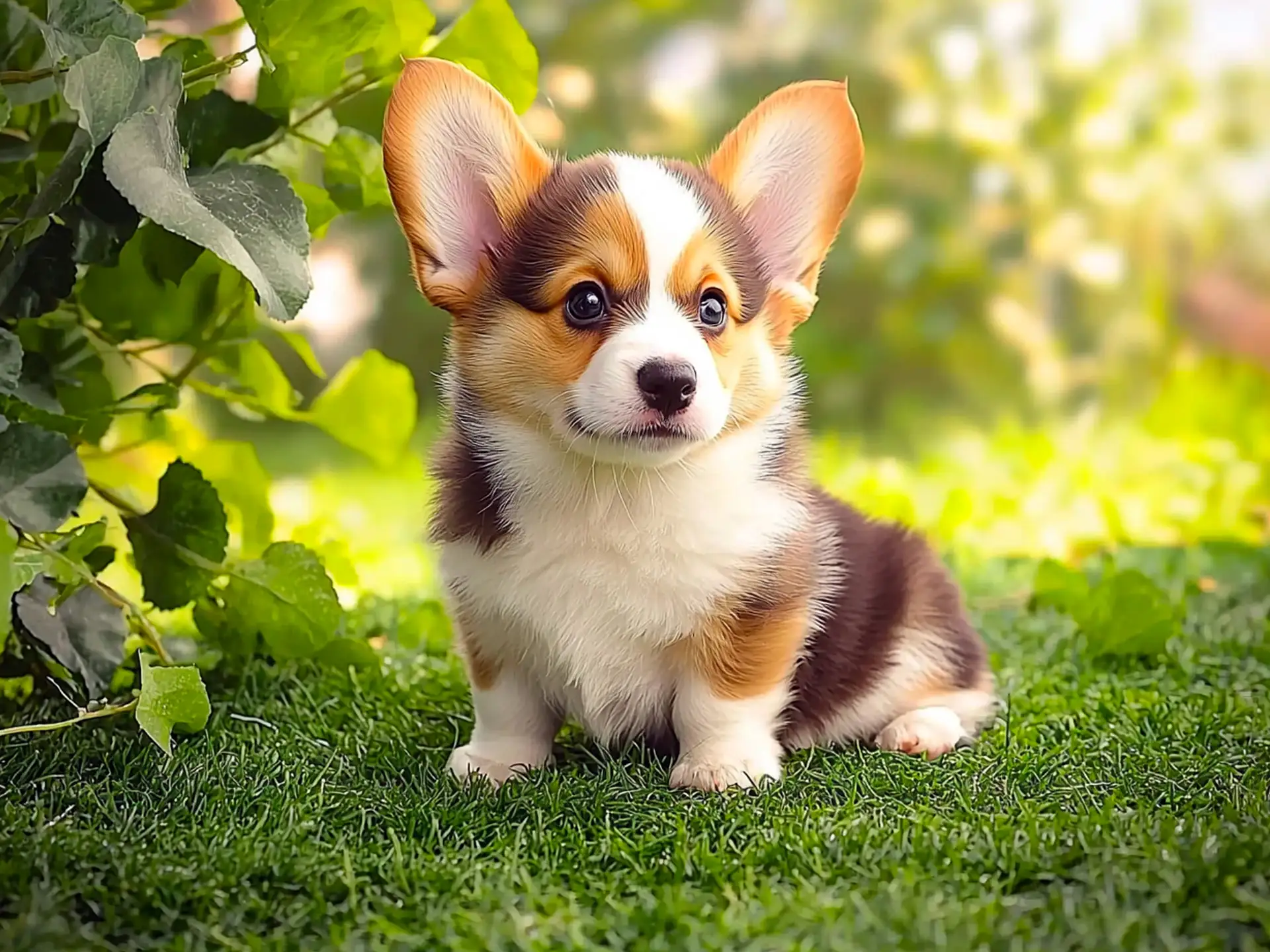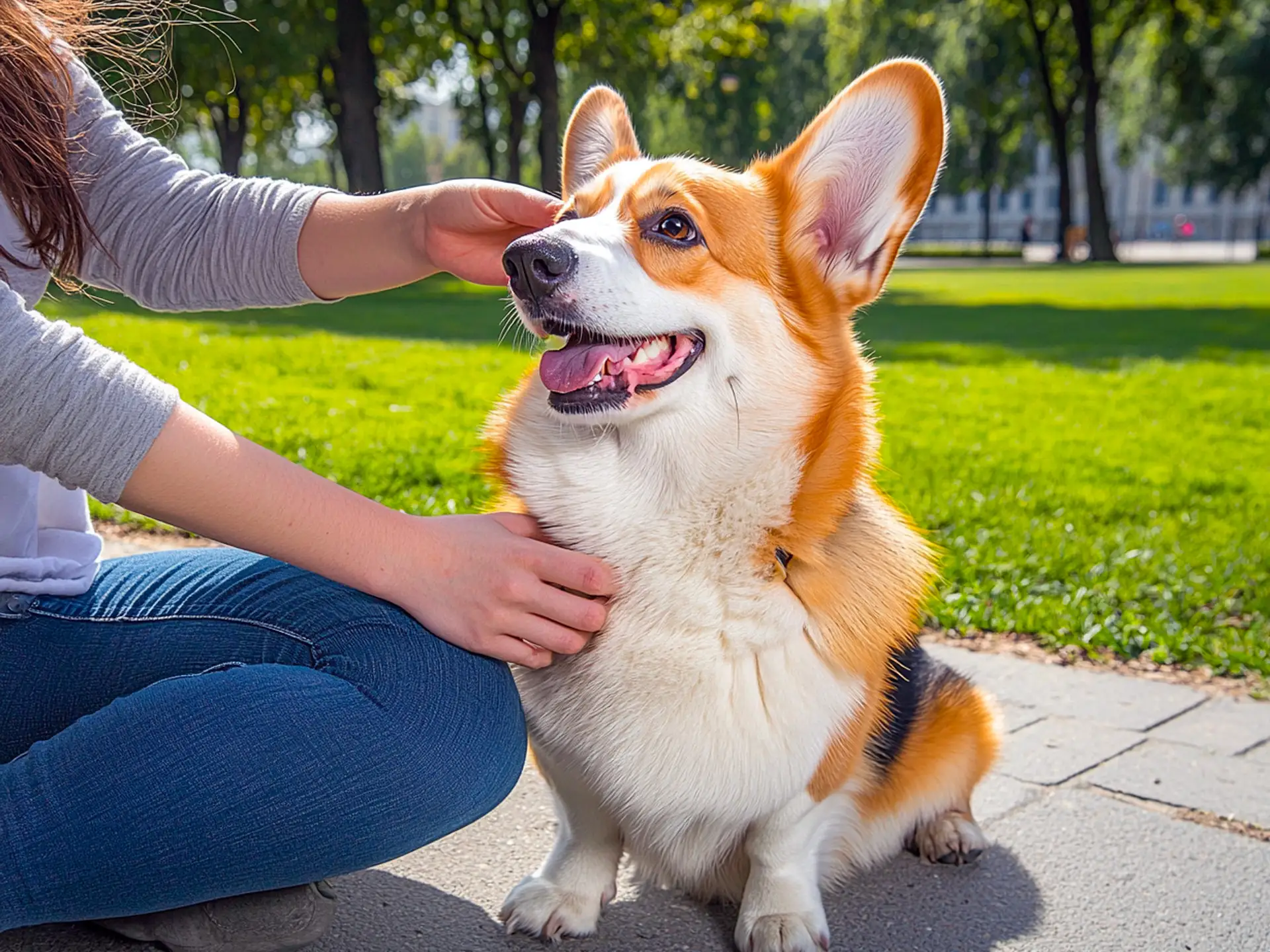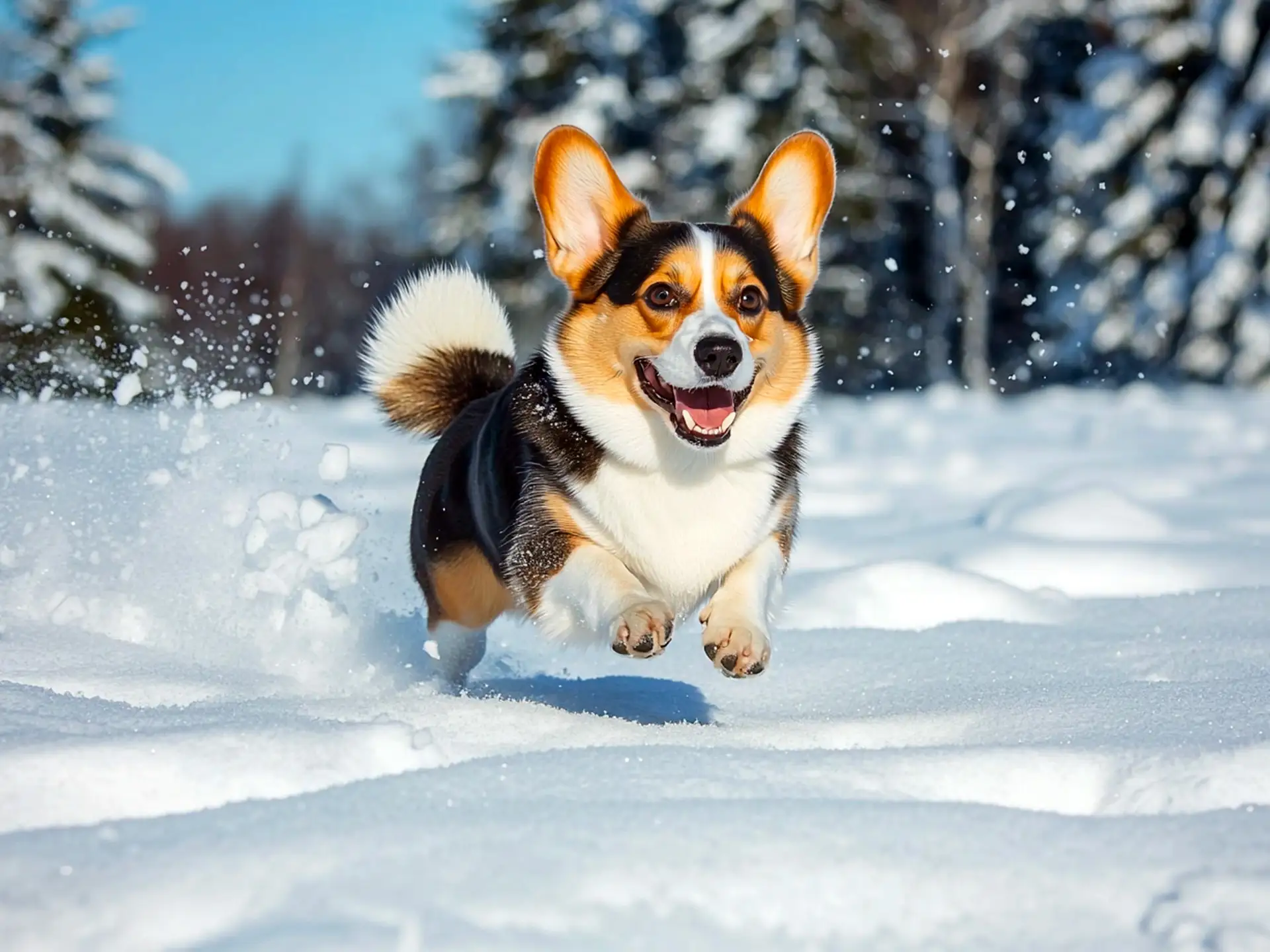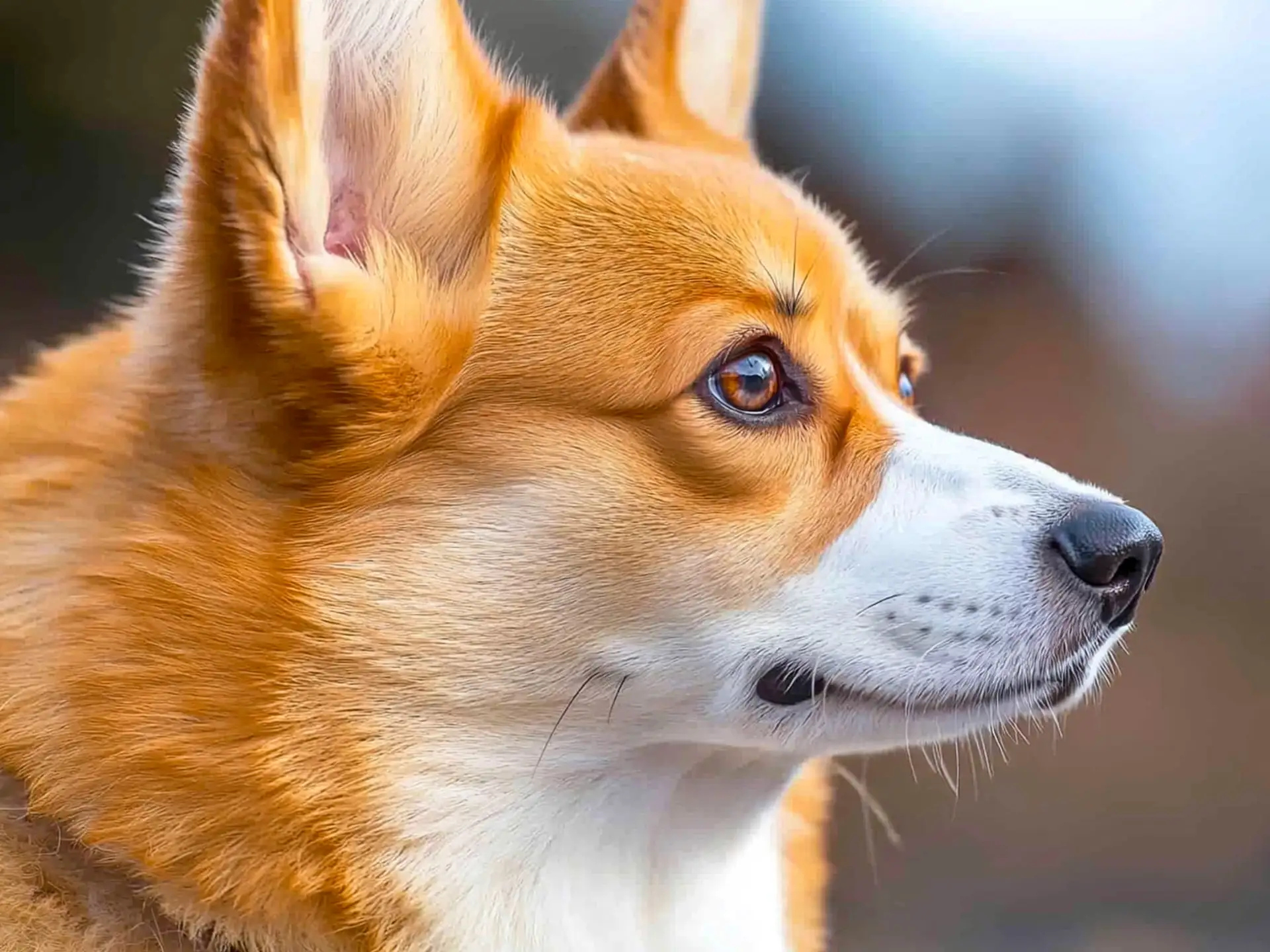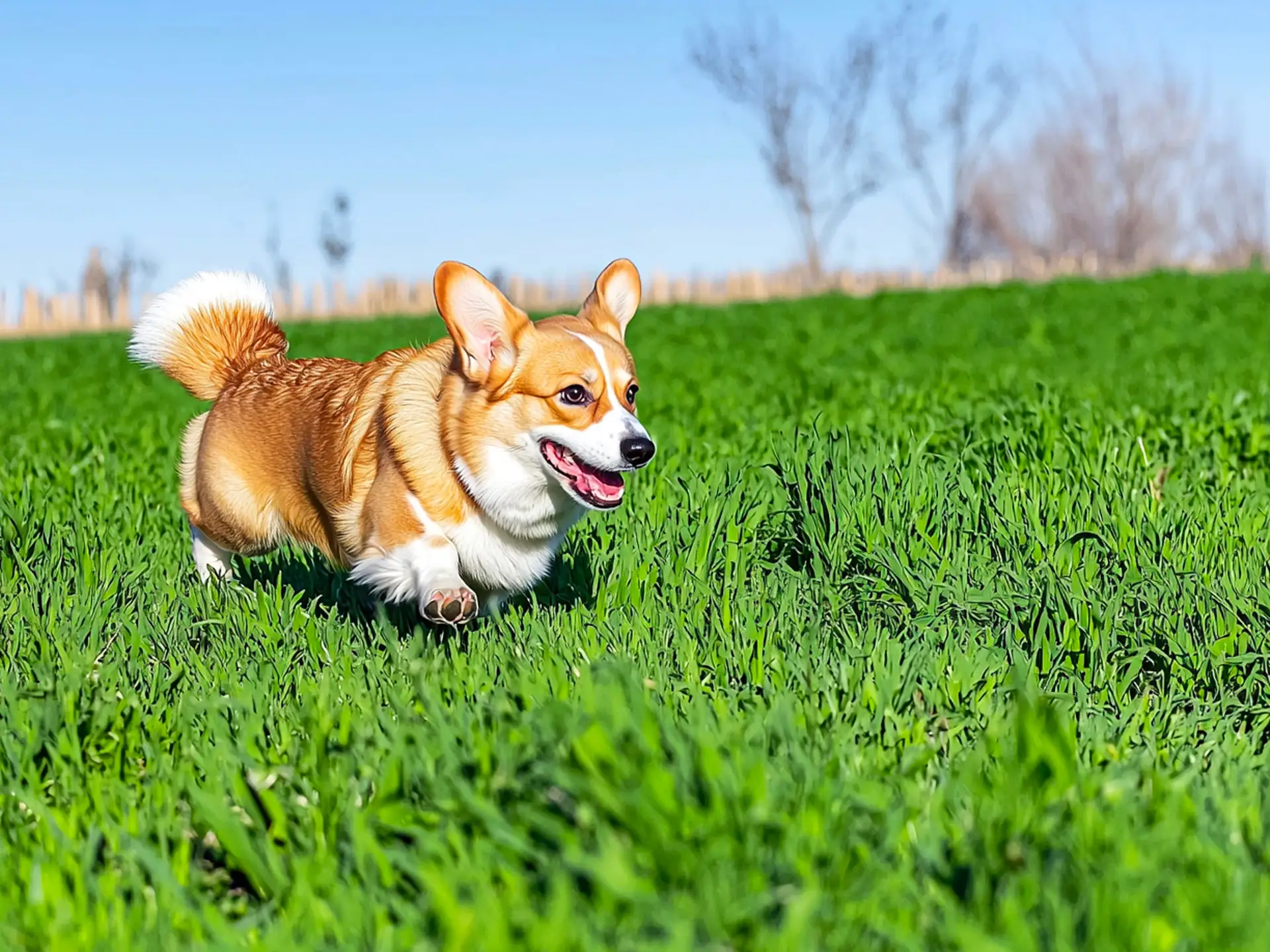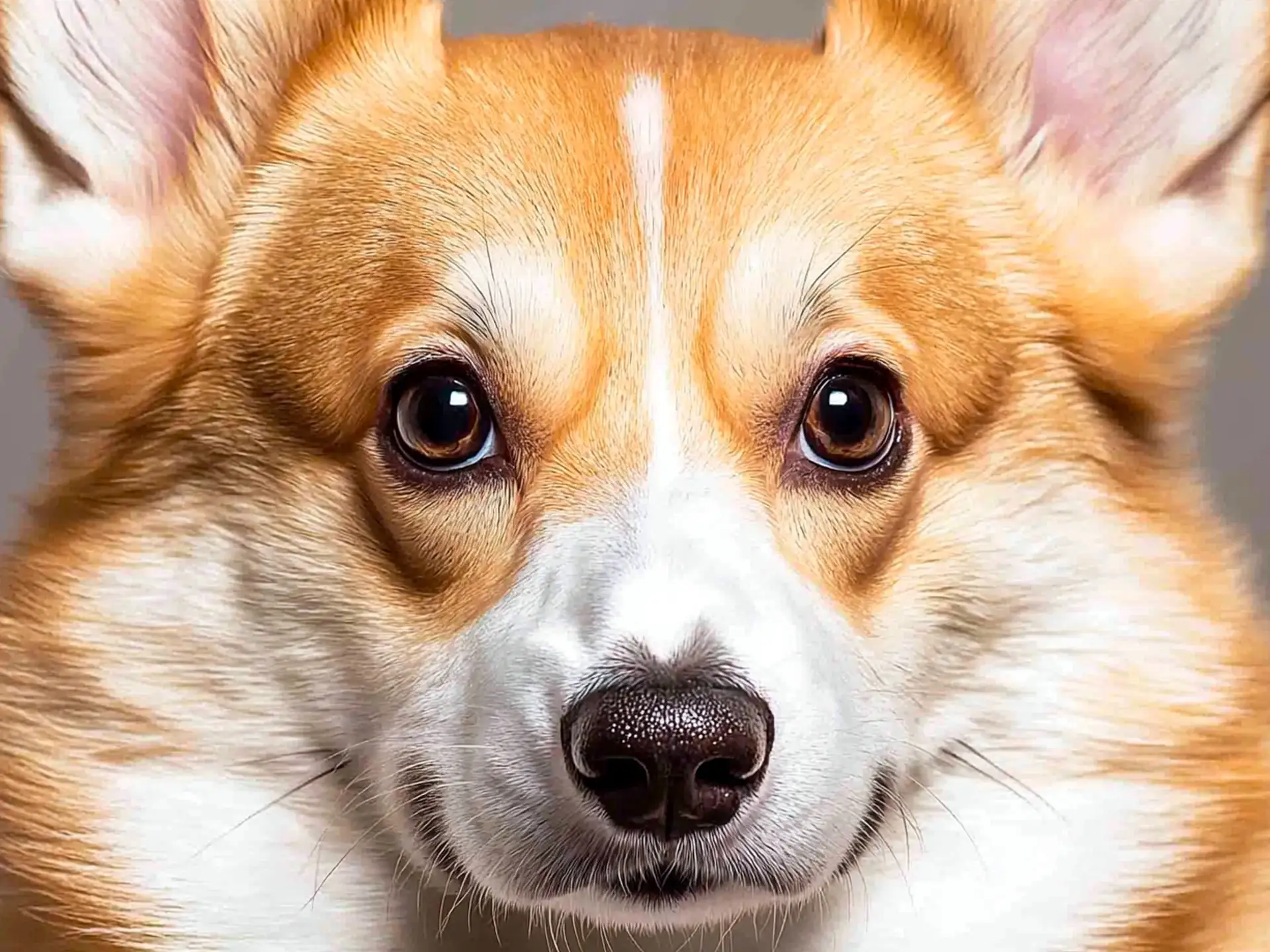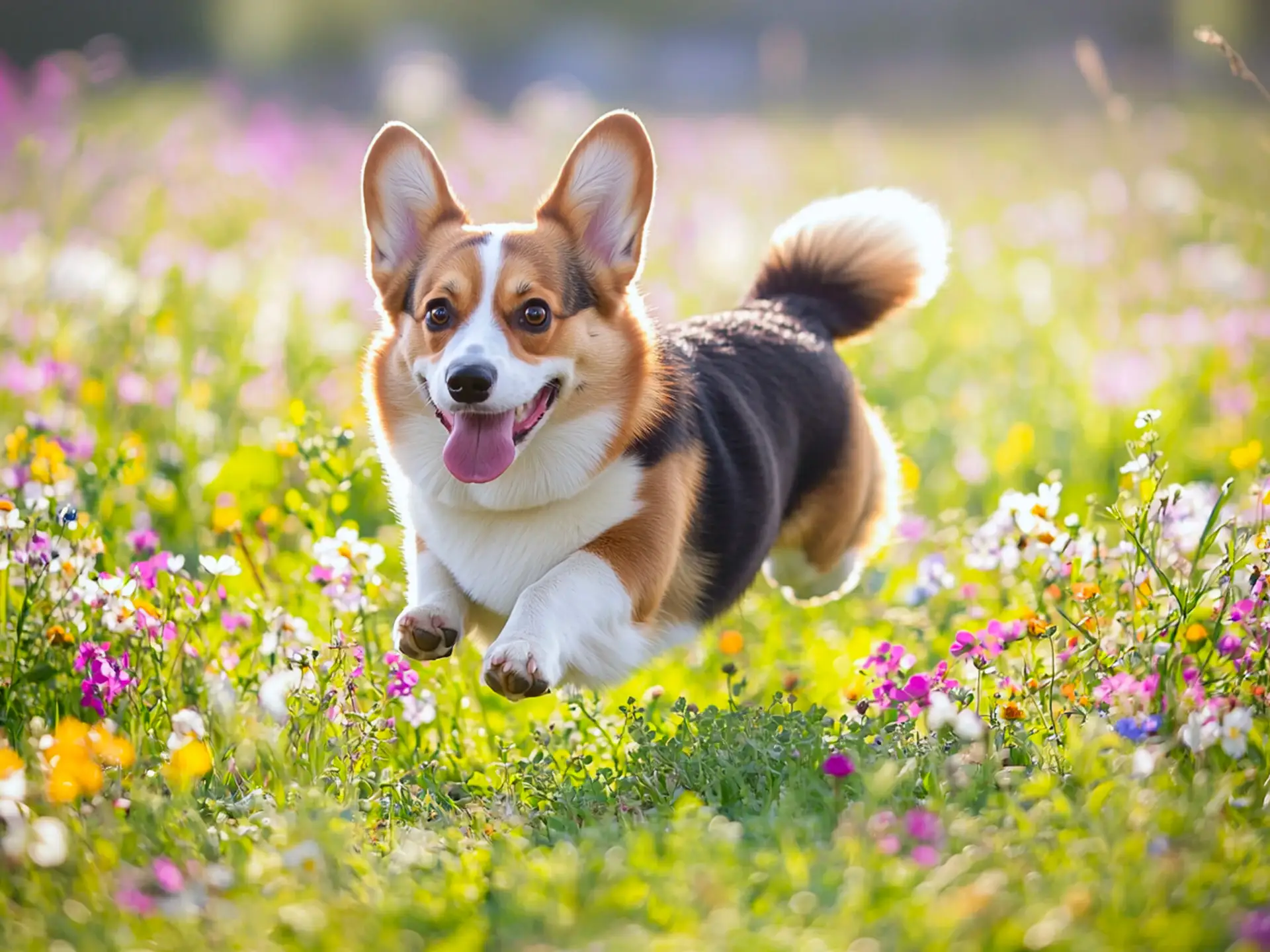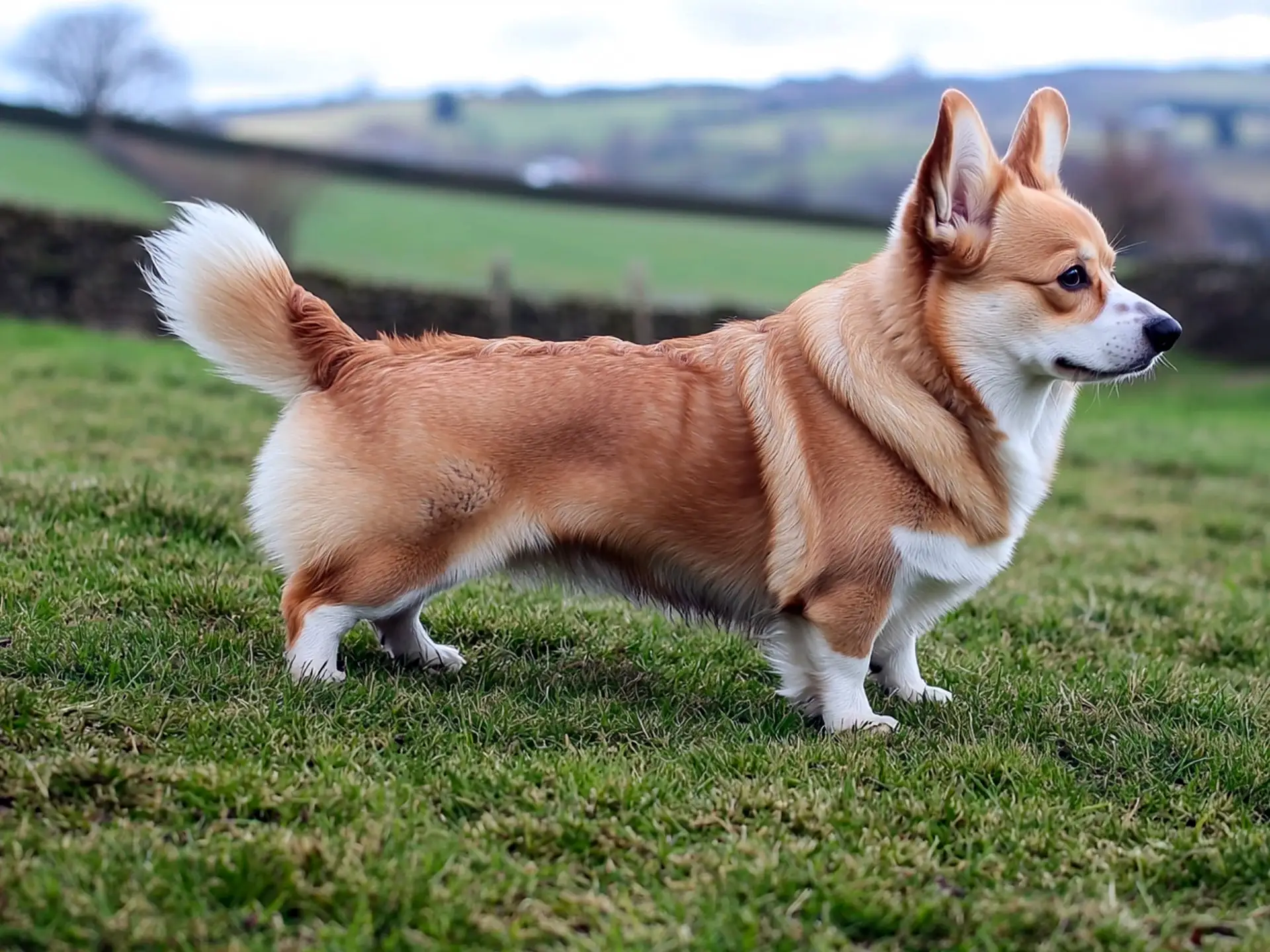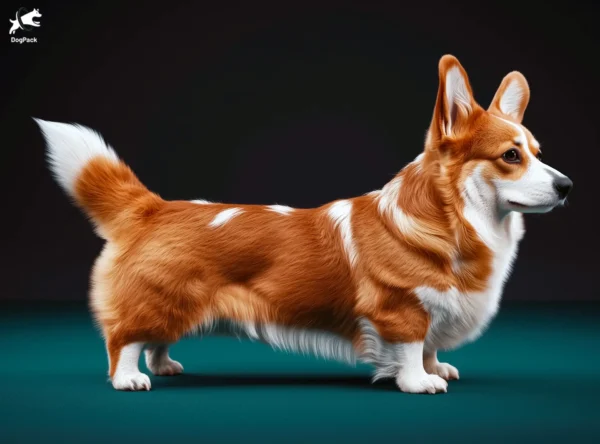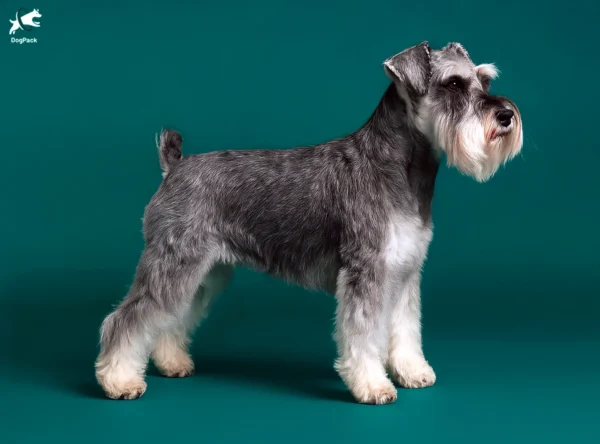Pembroke Welsh Corgi Dog Breed Info & Overview
In the world of cheerful canines, the Pembroke Welsh Corgi stands out with its trademark short legs and big personality. Renowned for its herding history and undeniable charm, this breed has captured hearts globally. With a spirited nature and a loyal disposition, it’s no wonder they remain a popular choice for many families.
Characteristics
Pictures
Breed History
Bred to herd cattle and sheep across the Welsh countryside, these pups can trace their roots back to the 12th century. Legend even whispers that fairies used them to pull tiny carriages, attributing shoulder markings to miniature harnesses. They emerged as invaluable working dogs, using their short stature to nip at heels with remarkable efficiency.
Over time, these compact herders gained favor among farmers for their intelligence and bravery. They excelled by dodging hooves and guiding livestock over uneven terrain. This keen awareness and agility translated well into modern life, where they continue to thrive as companions. Their early success in rural settings laid the groundwork for the adoration they enjoy worldwide.
The Pembroke Welsh Corgi officially separated from its Cardigan cousin in the 1930s. Queen Elizabeth II’s well-known fondness for the breed propelled its popularity to new heights. Transitioning from farm fields to royal halls, they never lost their confident spirit or boundless work ethic. Nowadays, enthusiasts often celebrate their heritage through breed clubs and lively herding trials.
Temperament, Personality
Often described as big dogs in small bodies, they adore interacting with their humans. Eager to say hello to visitors, they trot around with a lively bounce. Their enthusiasm can be downright infectious. When socialized early, they’re gentle enough for family playdates and can charm just about anyone who walks through the door, including enthusiastic children.
Herding genes sometimes lead to playful ankle-nipping, so early correction is key. They’re observant and protective, ready to alert you if something seems off. A steady routine and plenty of mental stimulation help bring out their best qualities. With a warm attitude toward people, they can also form close bonds with family cats or other household pets.
The Pembroke Welsh Corgi flourishes in environments where their sharp mind is kept busy. They love puzzle toys and games that challenge their quick thinking. While they relish affection, their spirited nature ensures they’re seldom content just lying around. If you’re seeking a small sidekick brimming with confidence and loyalty, these canines might be the perfect fit.
Physical Characteristics
Their long torso and short legs create a distinct silhouette that’s instantly recognizable. A foxy face and erect ears lend an ever-alert expression. Despite their small stature, these dogs are surprisingly robust, enabling them to keep pace with larger breeds. They possess a good balance of agility and sturdiness, a trait honed by centuries of corralling livestock.
Common coat colors include red, sable, and black-and-tan, often brightened by white patches on the chest, legs, or face. Their weather-resistant double coat provides protection in damp or chilly climates. When excited, they showcase a perky stance and an unmistakable sparkle in their eyes, reflecting the confident, upbeat personality that has endeared them to countless admirers.
A typical Pembroke Welsh Corgi stands between 10 and 12 inches (25–30 cm) tall and weighs roughly 24 to 30 pounds (11–14 kg). Though short, their frame carries surprising heft. Their upright ears swivel like radar dishes, always tracking new sounds. Coupled with a charming grin, these attributes solidify their reputation as striking, spirited little herders.
Health Issues
These dogs are prone to conditions like hip dysplasia, degenerative myelopathy, and eye problems, such as progressive retinal atrophy. Responsible breeders often screen for these genetic issues, but awareness is still crucial. Early detection and preventive care greatly reduce severity. Regular veterinary checkups are an ideal way to spot potential concerns before they develop into serious complications.
Weight gain is a common challenge, placing extra strain on their spine and joints. Because of their elongated back, any additional pounds can escalate the risk of mobility problems. A careful balance of proper nutrition and daily exercise keeps them at an ideal weight. It also helps ward off painful joint conditions that can diminish their overall quality of life.
For a Pembroke Welsh Corgi, consistent monitoring of mobility and vision is wise. Look out for subtle signs of discomfort like limping or reluctance to jump. If caught early, many health conditions can be managed with medication, therapy, or modified exercise. By staying vigilant and partnering closely with a veterinarian, owners can ensure a long, active life for their companion.
Grooming Needs
A plush double coat means they’ll shed steadily, with pronounced seasonal “coat blows.” Weekly brushing keeps hair under control, while daily sessions help during heavy shedding periods. Using a slicker brush or deshedding tool can reduce fur tumbleweeds around the house. Grooming is also an ideal time to check for lumps, irritations, or any irregularities on their skin.
Bathing them too frequently can strip essential oils, so stick to an as-needed schedule. Trimming nails every few weeks, cleaning ears regularly, and wiping their face when necessary round out the basic routine. Their coat’s natural resilience ensures they generally stay tidy, but a little maintenance goes a long way in preserving that famously soft, velvety feel.
The Pembroke Welsh Corgi especially benefits from consistent dental care, as smaller muzzles can be prone to tartar buildup. Regular brushing—plus dental chews or specialty diets—helps maintain healthy gums and fresh breath. Ultimately, grooming is more than just cosmetic upkeep; it fosters a close bond. Gentle handling and treats during grooming sessions can reinforce positive associations for both owner and pup.
Exercise Requirements
Don’t let short legs fool you: these dogs come equipped with a surprising reserve of energy. Daily walks and active games, like fetch or hide-and-seek with treats, keep them fit. Because they’re smart, mental challenges—such as puzzle feeders—are just as vital. A bored dog can quickly turn to mischief, so staying engaged is key to a harmonious household.
Due to their herding background, they may excel in canine sports like agility, obedience competitions, or rally. These activities not only channel natural instincts but also strengthen the bond with their handler. To protect their backs, avoid letting them jump from high surfaces or climb too many stairs. Moderation and structured workouts help them thrive without risking injury.
For the Pembroke Welsh Corgi, about 45–60 minutes of exercise each day usually does the trick. Split into shorter sessions if needed to accommodate a busy schedule. They relish any opportunity to join you on walks, nature hikes, or even quick errands around the neighborhood. Give them room to explore safely, and you’ll be rewarded with a content, well-behaved companion.
Training Tips
A gentle, consistent approach works best with these quick learners. Positive reinforcement with treats, toys, or praise can motivate them to practice good manners. Short training intervals prevent boredom, keeping their minds sharp. Address herding behaviors—like ankle-nipping—early on by redirecting them to appropriate chew toys or structured play that satisfies their instinct without overwhelming family members.
Encourage them to handle everyday routines with ease by gradually introducing grooming, crate training, and polite greetings. Their alert nature can sometimes transform into excessive barking if not managed. Teaching a “quiet” command or rewarding calm behavior curbs this tendency. Patience is vital, as they’re adept at sensing tension—harsh corrections may provoke stubbornness or anxious reactions.
A Pembroke Welsh Corgi typically thrives on advanced challenges once basic obedience is mastered. Puzzle games, scent work, or agility courses keep their lively minds engaged. Rotating training exercises helps maintain enthusiasm for learning. Since they’re observant, they might test boundaries occasionally, so consistent rules are a must. Over time, these efforts yield a confident, cooperative companion.
Nutrition, Diet
Because of their sturdy build, these little herders don’t need huge meals. Most do well on about ¾ to 1 cup of premium kibble per day, split into two meals. Overindulging can quickly lead to weight gain, which stresses their spine and joints. Keep an eye on treats and table scraps—those pleading eyes might tempt you to overfeed.
Lean proteins like turkey, chicken, or fish support strong muscles, while formulas containing fish oil or flaxseed provide omega-3 fatty acids for joint and coat health. Some handle grains without issue, while others might thrive on grain-free diets—seek vet advice for the best option. Pay attention to portion sizes, as these pups can be quite persuasive beggars.
For a Pembroke Welsh Corgi, regular weight monitoring is crucial. Incorporate healthy, low-calorie treats like carrots or green beans if they’re prone to feeling “snacky.” Avoid abrupt changes in diet; transition slowly to avoid digestive upsets. Proper nutrition maintains their trademark energy levels, keeps their waistline trim, and ultimately contributes to a long, active lifespan.
Adoption, Breeders
If you’re set on this spirited breed, adoption via local shelters or breed-specific rescues can be incredibly rewarding. Older or rescued dogs may come with training already in place. Plus, rescues often provide additional support, such as fostering programs or meet-and-greets, so you can find a compatible companion who matches your lifestyle and energy level.
Should you decide to go through a breeder, ensure that their practices are transparent and ethical. They should welcome questions about health guarantees, parental lineage, and living conditions. Meeting the puppies’ mother (and father, if possible) offers insight into potential temperament or genetic predispositions. Reputable breeders will also quiz you about readiness—quality placement goes both ways.
For a reputable guide, the Pembroke Welsh Corgi Club of America provides thorough resources, including breeder referrals. You can also explore the AKC Marketplace for certified breeders committed to strict standards. In the end, choosing your Pembroke Welsh Corgi from a responsible source not only upholds the breed’s integrity but also ensures a healthier, happier companion.
Family Pet?
Their friendly temperament and moderate size make them appealing to a wide range of households. Kids are often enthralled by their playful antics, and these dogs usually reciprocate the enthusiasm. They’ll happily join family game night or cozy up on the sofa. As long as they’re involved in daily activities, their upbeat energy and affection shine.
However, children should be taught to handle them carefully, since rough play can trigger nips or back strain. Encouraging gentle interactions fosters a trusting relationship between canine and child. With other pets, a proper introduction and gradual socialization are necessary, especially since a corgi’s instinct might be to herd every moving creature, from cats to rabbits.
For the Pembroke Welsh Corgi as a family pet, shared fun and structured routines are key. They thrive when engaged in group exercises or training sessions. Playful but protective, they make wonderful watchdogs without being overly aggressive. A consistently active lifestyle ensures they remain content in households bursting with life and laughter, forming durable bonds with every family member.
Right For You?
If you love a dog bursting with personality, these jaunty pups could be an excellent match. They’re happiest in settings where daily walks, mental stimulation, and social time are non-negotiable. Their outgoing nature blends well with busy households. In quieter environments, they still excel, provided you dedicate sufficient time to engage their minds and keep them entertained.
On the flip side, they’re not ideal for those seeking a laid-back lap dog. Their penchant for herding and barking may cause issues if left unchecked, especially in small living spaces. While apartment life is feasible, it demands diligent training and scheduled outings. Their ever-watchful personality might not suit individuals who prefer a dog that simply lounges around all day.
Deciding on a Pembroke Welsh Corgi hinges on whether you can match their zest with the appropriate level of care and activity. They shine when allowed to participate in family events or lively adventures. If you’re prepared to guide their intelligence in a positive direction, you’ll gain a steadfast companion who’s packed with energy and loads of charm.
Conclusion
All in all, these spirited canines offer a fun-loving, loyal presence that lights up any home. With a healthy blend of exercise, training, and social time, they flourish as wonderful companions for active individuals and families. By understanding their roots as confident herders, you can appreciate their need for both physical and mental engagement. Watching them scurry about—short legs and all—brings endless smiles. If you’re prepared to invest in playtime, grooming, and lots of affection, the Pembroke Welsh Corgi could be your ideal four-legged friend. Their intelligence, curiosity, and unwavering devotion make them a standout choice for anyone yearning for a smaller dog with a massive heart.
FAQs
-
Why do Pembroke Welsh Corgis have a natural bobtail or no tail at all?
Unlike Cardigan Welsh Corgis, Pembroke Welsh Corgis are often born with a natural bobtail or a very short tail due to a genetic mutation. Historically, their tails were docked to prevent injuries while herding, but in some countries, docking is now banned.
-
Why do Pembroke Welsh Corgis “sploot” when lying down?
A sploot is when a dog stretches its back legs straight behind them while lying down. Pembroke Welsh Corgis are famous for this position due to their flexible hip joints and long bodies, which allow them to comfortably extend their legs in this way.
-
Do Pembroke Welsh Corgis really “talk” a lot?
Yes! Pembroke Welsh Corgis are known for their vocal personalities, often using barks, grumbles, and “woos” to communicate. This trait is deeply rooted in their herding instinct, as they historically used their voices to help move cattle.
-
Why do Pembroke Welsh Corgis “herd” people by nipping at their heels?
This breed was originally bred to herd cattle, using gentle nips at their legs to direct movement. Even as pets, many Pembroke Welsh Corgis retain this behavior, which can be managed through training and redirecting their instincts with engaging activities.
-
What makes Pembroke Welsh Corgis a favorite breed of the British Royal Family?
Queen Elizabeth II famously owned more than 30 Pembroke Welsh Corgis throughout her reign. Their loyal nature, intelligence, and playful spirit made them her constant companions, and they became an iconic part of the Royal Family’s public image.
Breed Ratings
The Pembroke Welsh Corgi is exceptionally bright, picking up commands quickly and thriving on mental challenges.
This breed brims with a mischievous spirit, always ready for a game of fetch or a romp in the yard.
While not marathon runners, they’re spirited enough to require daily exercise and mental activities.
Their double coat can shed heavily, especially in seasonal transitions, so expect fur tumbleweeds.
Originally herders, they might chase smaller animals but usually respond to training.
Regular brushing is needed to manage shedding, though they don’t require intricate haircuts.
Eager and smart, they learn fast with consistent, positive methods and tasty rewards.
Too much solitude can make them anxious or barky; they prefer company.
Expect some vocalization, particularly to announce visitors or voice excitement.
Typically minimal droolers, they keep relatively tidy muzzles.
Usually sociable, but early introductions and proper socialization help keep the peace.
Generally sturdy, with a few breed-specific concerns like hip dysplasia and IVDD to watch for.

